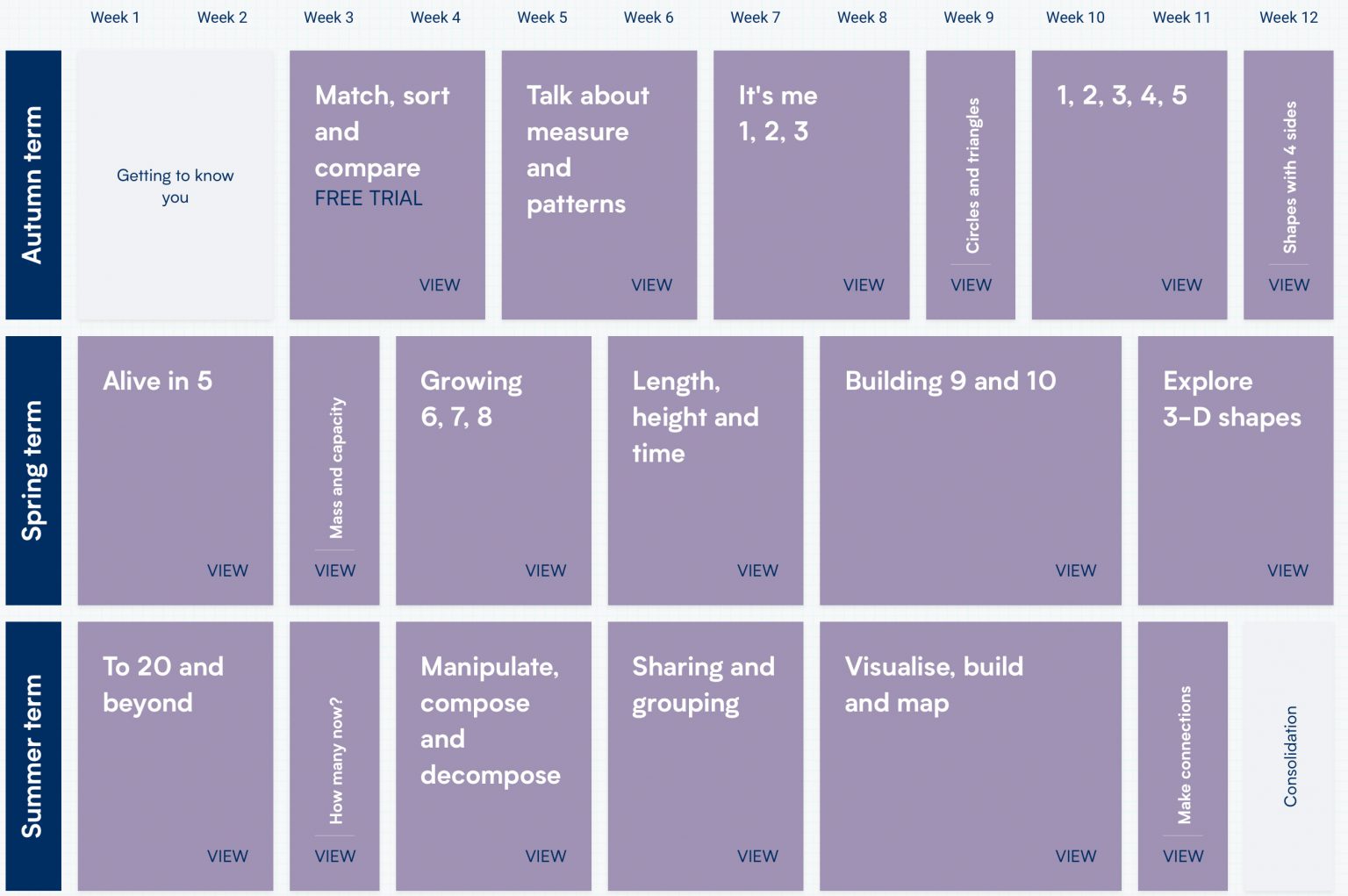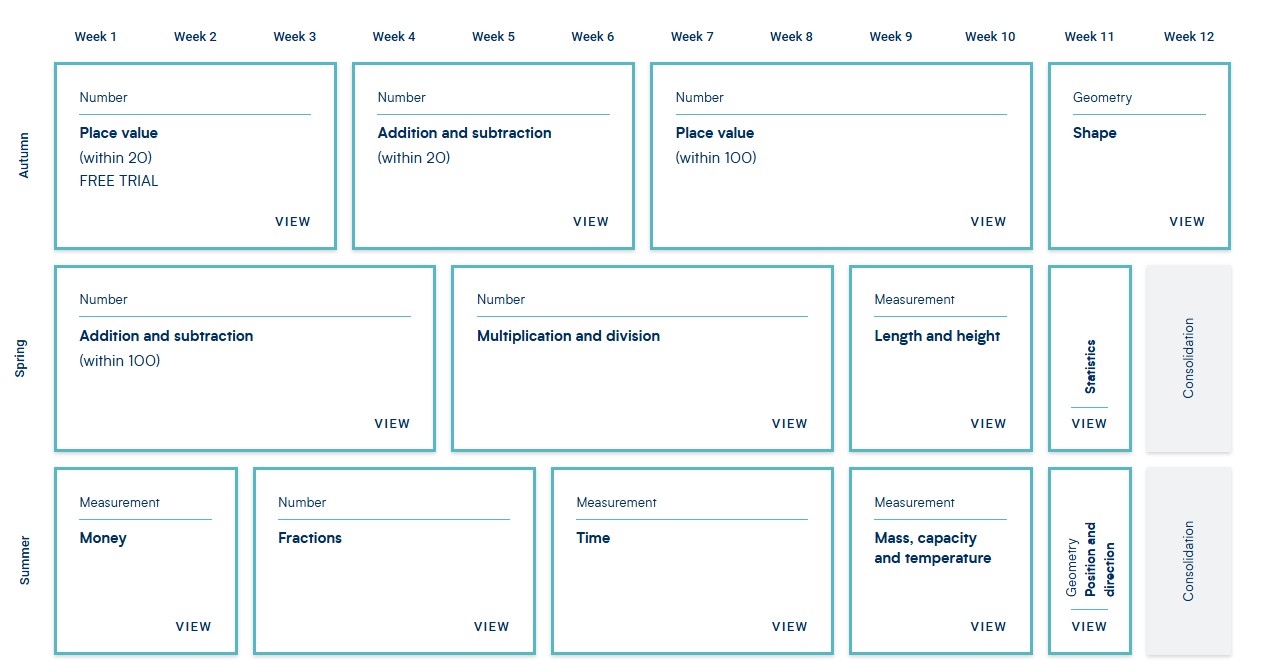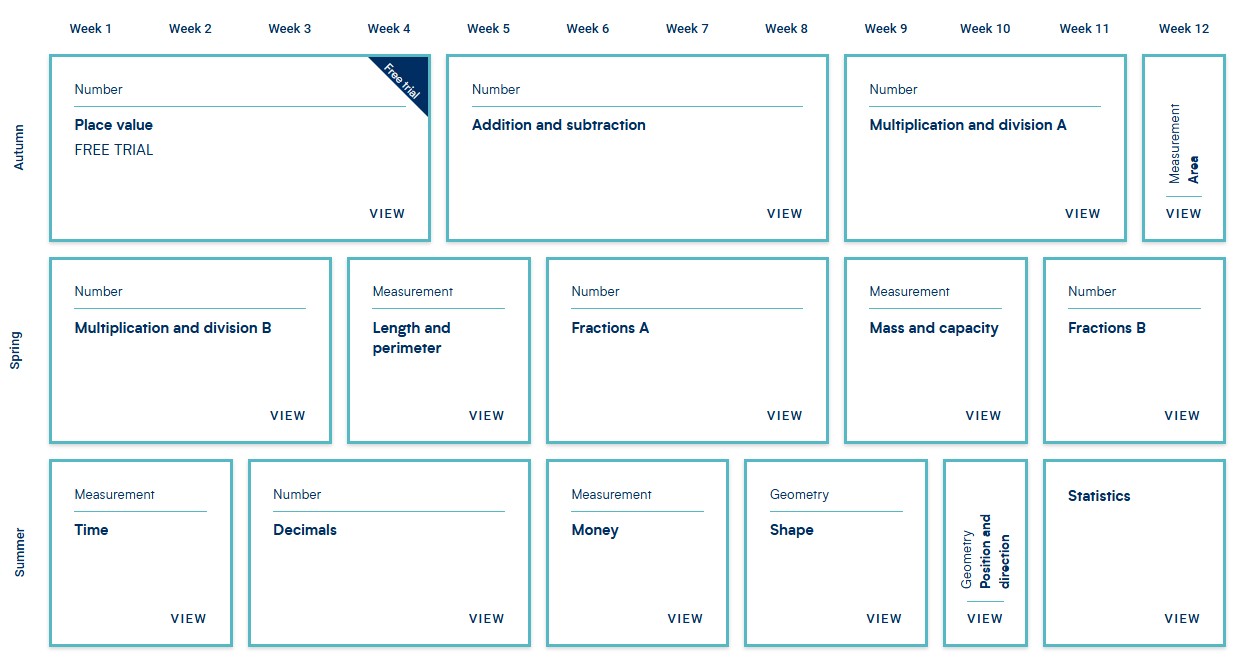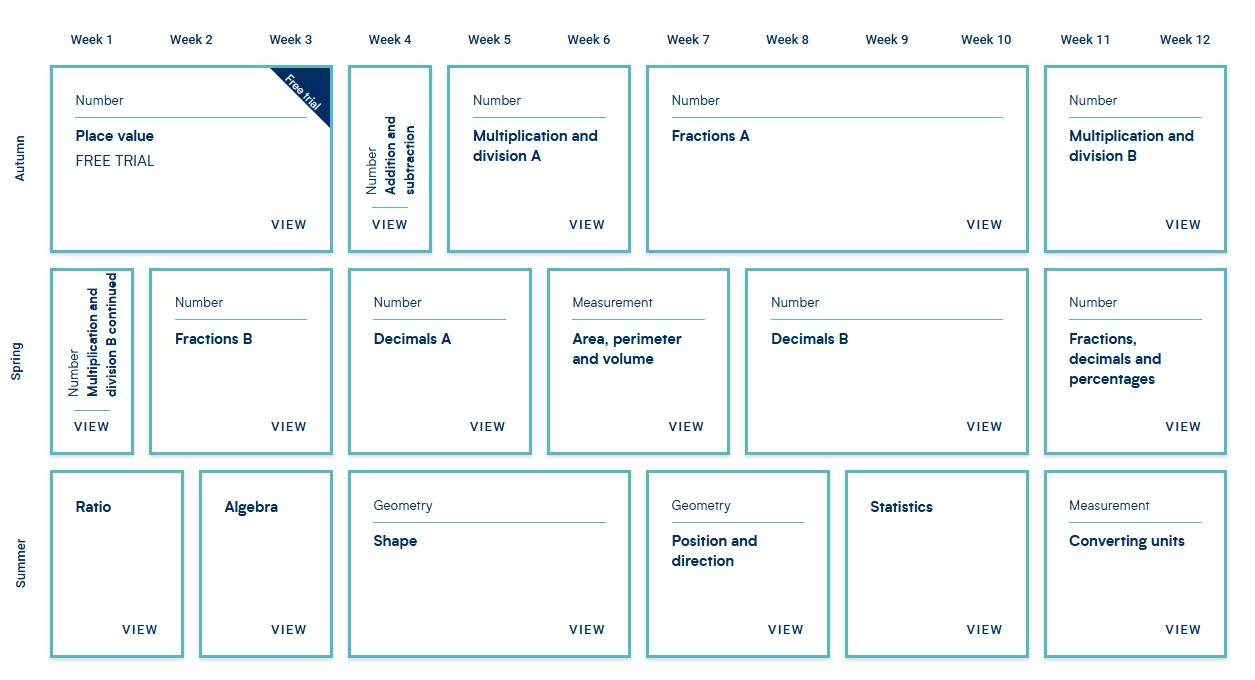Mathematics at Kenn Primary School places equal value on a deep understanding of number, alongside the development of reasoning and problem-solving skills. We believe that for children to succeed in later life and future employment, they must be confident and capable mathematicians. At Kenn, pupils are encouraged to embrace the challenge of real-life, contextual maths, underpinned by the essential skill of quick and accurate recall of number facts and operations.
We adopt a Mastery approach to mathematics, built on five key elements: a coherent and well-sequenced curriculum, a variety of mathematical representations, mathematical thinking, fluency, and variation in both concept and procedure. Oracy is central to our maths teaching, and children are actively encouraged to articulate their thinking, both verbally and in written form, using precise mathematical vocabulary. Each classroom is equipped with stem sentences to support children in confidently explaining their reasoning and responses.
Activating and building on prior knowledge is vital for both pupils and staff. Opportunities to assess what children already know and identify next steps empower them as motivated, independent learners. This ongoing process of reflection and planning is supported by careful assessment at the beginning and end of each unit, as well as through regular formative assessment.
At Kenn Primary, we aim to foster a love of maths and develop confident, enthusiastic learners. We celebrate mathematical learning through enrichment opportunities such as Times Table Rockstars Day, NSPCC Number Day, and participation in wider maths activities across our Trust.
SEND & Disadvantaged pupils
We plan to ensure that ALL children will develop a secure and deep understanding of the mathematics they are learning so that future mathematical learning is built on solid foundations. We encourage our children to have a positive mind-set and advocate that ALL children are able to succeed in mathematics, regardless of their prior attainment or starting point.
In embracing a mastery approach, we engage our children in reasoning and the development of mathematical thinking and plan to include:
- Coherent, carefully structured small learning steps
- Conceptual variation: the mathematical concept is presented in a variety of ways so children are able to discern the essential features.
- Multiple representations: a variety of manipulative and pictorial representations are used to explain the mathematical concept.
- Procedural variation: questions are chosen with care to demonstrate a particular concept, ensuring that calculations are more than simply finding an answer, but about understanding patterns and concepts too.
- Depth for all: every child in the lesson has the opportunity to apply their key learning through extension, application, reasoning or problem solving (or a combination).
- Scaffolding: support is available for those who need it (this could be by providing additional concrete resources; further peer or adult support where necessary; pre teaching/consolidation interventions).
Spiritual, moral, social and cultural development though mathematics.
Spiritual development in Mathematics – The study of mathematics enables children to make sense of the world around them and we strive to enable each of our children to explore the connections between their mathematics skills and every-day life. Developing deep thinking and an ability to question the way in which the world works promotes the spiritual growth of children.
Moral development in Mathematics – The moral development of children is an important thread running through the mathematics curriculum. Children are provided with opportunities to use their maths skills in real life contexts, applying and exploring the skills required in solving various problems. All children are made aware of the fact that the choices they make lead to various consequences. They must then make a choice that relates to the result they are looking for. The logical aspect of this relates strongly to the right/wrong responses in mathematics.
Social development in Mathematics – Problem solving skills and teamwork are fundamental to mathematics through creative thinking, discussion, explaining and presenting ideas. Children are always encouraged to explain concepts to each other and support each other in their learning. In this manner, children realise their own strengths and feel a sense of achievement, which often boosts confidence. Over time, they become more independent and resilient learners.
Cultural development in Mathematics – Mathematics is a universal language with a myriad of cultural inputs throughout the ages. Various approaches to mathematics from around the world are used and this provides an opportunity to discuss their origins when appropriate.







 Follow
Follow